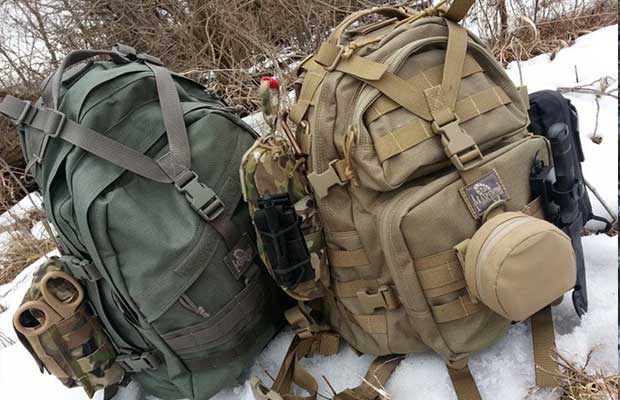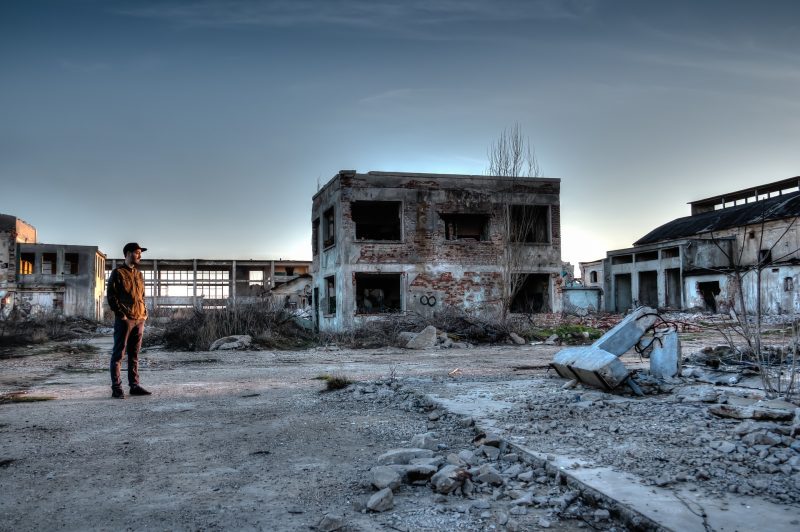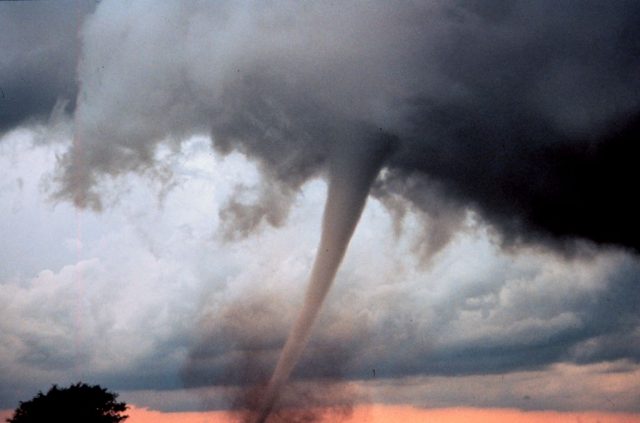Bugging out: preparation for the worst case scenario becoming reality
‘Bugging out’ is military jargon which came into being during the Korean War. It refers to packing some essentials and getting out of the danger zone post haste. If it looks like a life threatening event is possible in your current situation, you could pack some essentials and even do a practice run just to check things out. While Armageddon is unlikely, you may want to have a plan just in case.
Survival instructions can be hopelessly confusing and quite often irrelevant for your situation. So you need to personally assess any potential risk that circumstances might pose for you and your family. The first thing you would have to be quite sure of is whether moving from where you are is better than staying put. You might move to a situation which is considerably worse than the one you’re already in. You could be safer and more comfortable in a place with which you are familiar, rather than heading for the unknown.

If you find yourself in a position where these kinds of decisions have to be made, you will have to rely on your instinct and what you can hear and see. In the case of disaster, the usual methods of communication could well be down. Be careful, however, to base your decisions on fact and not on fear, emotion or rumor.
First and foremost, you will want to remove yourself from imminent danger. Once you have decided that this is the plan of action, do not hang around. It would likely take some time just to be able to get out of town, and this could also be very dangerous. If you are unable to drive away, you may want to reconsider. Staying where you are may be a better option. If everyone becomes aware that there is a threat, then everyone will be in their cars heading out of town. The roads will be clogged, full of panicked people, meaning you will be stuck in place.
Still, if you are sure that staying in the place you are in poses a bigger threat than moving, then logic indicates you had better move. However, the only way that moving out will improve your chances is if you leave before the situation deteriorates. Either way, you are taking a chance. You may find that this turns out to have been unnecessary and to have been the wrong decision. By that time, though, you may be far away from home, possibly without adequate supplies.

If this worst-case scenario becomes a reality, you will have to be able to keep yourself fed and hydrated without assistance. Presumably, in an emergency as dire as the one where you need to evacuate, there will not be any convenience stores open where you will be able to top up supplies. Bug-out bags are often called 72-hour bags for obvious reasons. You will need to ensure that you have food, clothing, medical supplies and most importantly, water. You may well have to have a plan on what to do if re-supplying becomes necessary.
What to do?
If this kind of danger presents itself, then getting away will be the number one objective. If your city is under attack, you do not want to stick around. You would do well to be familiar with the quickest way out. It would also be a good idea to have a plan in place of where you should be headed.
The best-laid plans of mice and menYou will need to have some intimate knowledge and experience of your plan of action. Planning is often smooth until you have to actually do the things you planned with real people and real situations. A test run could prepare you for these sorts of eventualities.
As you are making your plans, you will need to be sure of exactly what you think you want to achieve. Have a plan B and probably a plan C. Where would you go? This clearly would depend on just what the threat is and where it is. Therefore you may only be able to make accurate assessments when the danger is real. If the entire country is under threat, do you know what you will do?
Natural disasters
However, the following are a lot more likely to be the cause of the imminent danger: flooding, fires, hurricanes, and storms could be the events that force you to act. These threats are usually localized, and you may decide to get away while you still can. In this case, you will be planning to get to an area which is unaffected by the disaster. You should stay there until it is safe to return home. You will need to sustain yourself and your family while you are away as well.
Before you startYou will need to establish the likelihood of the various threats and what action would be appropriate to take. Attacks may be more likely on cities where there is a large population. You cannot decide to leave until you are in fact under attack, as you are unlikely to be warned in advance. When you know about this, no doubt so will everyone else. You will need to know where you will be going to. Wandering aimlessly is just that: aimless.

You can only carry a limited amount, but you will need to establish what you can carry and what will be necessary. Survival is more likely if you have supplies sorted. Again, a plan B is always good. You will need to be prepared for unpredictable weather. It could be cold, you could be dealing with sickness and injury to boot. You will need to be prepared either way.
This article is not meant to scare you but just to make you consider the “what if’s.” Disasters happen, and while you cannot predict the future, it is well to be prepared.
If you have any comments then please drop us a message on our Outdoor Revival Facebook page
If you have a good story to tell or blog let us know about it on our FB page, we’re also happy for article or review submissions, we’d love to hear from you.
We live in a beautiful world, get out there and enjoy it. Outdoor Revival – Reconnecting us all with the Outdoors.





